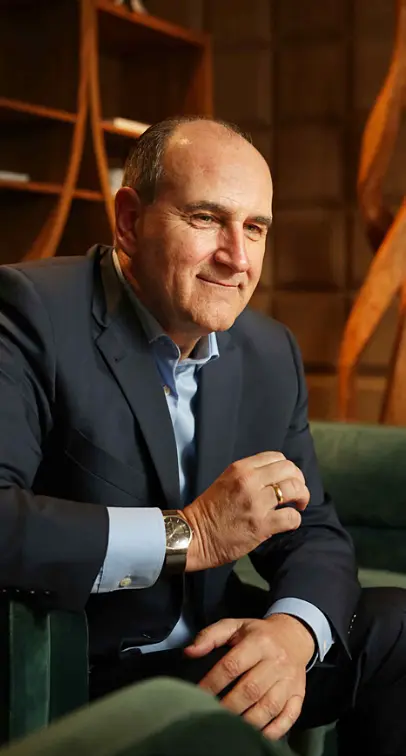Corporate Culture Advisory Services
“One of the biggest mistakes made by global organizations is believing they are measuring culture through their engagement surveys.
The reality is that engagement and culture are related but different. While most organizations measure engagement, very few measure their culture.
Yet, it is culture that drives engagement and long-term operating performance.” – John Mattone
Your Culture is the Key to Sustainable Growth
A Thriving Culture Aligns Leadership, Engages Employees, and Drives Results
Why Culture Matters More Than Ever
Most organizations confuse employee engagement with culture. While engagement is critical, your culture ultimately drives and sustains engagement. Ignoring or neglecting cultural alignment creates significant business risks, including:
- High Turnover & Talent Loss – Top talent leaves when culture and leadership misalign.
- Low Morale & Disengagement – Employees become demotivated and disengaged without clear purpose and alignment.
- Leadership Misalignment – Vision becomes blurred, resulting in ineffective execution.
- Innovation Stagnation – A weak culture stifles innovation and agility, risking market disruption.
- Missed Opportunities – Ineffective cultural foundations prevent strategic growth and market agility.
Organizations must intentionally measure, manage, and optimize culture to thrive.

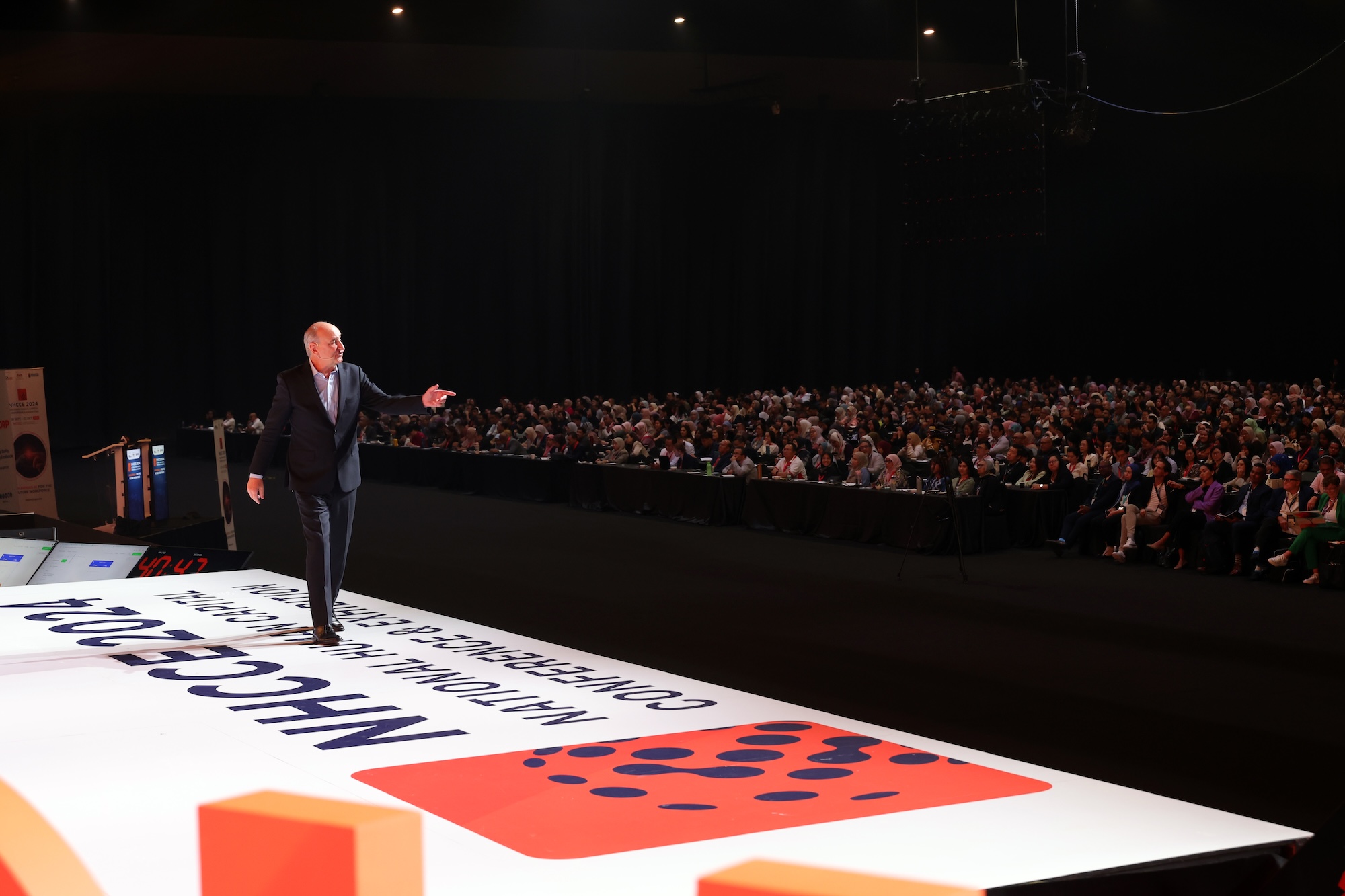
How a Strong Company Culture Drives Results
The most successful organizations recognize that culture fuels performance. Companies with a strong, leadership-driven culture experience:
- Stronger Financial Results – Companies with well-aligned cultures outperform their competitors in revenue growth and profitability.
- Increased Employee Retention – Engaged and motivated employees remain loyal, significantly reducing turnover and associated costs.
- Enhanced Innovation and Agility – A culture promoting psychological safety empowers teams to innovate, adapt, and thrive through market changes.
- Higher Productivity – Clear cultural alignment leads employees to feel empowered and invested in organizational success.
- Consistent Strategic Execution – Aligned leaders and teams move cohesively towards clearly defined organizational goals.
At John Mattone Global (JMG), we empower organizations to achieve these outcomes by transforming their workplace culture through our proven Intelligent Leadership® strategies.
Proven Cultural Transformation Results from Industry Leaders
“John Mattone’s Cultural Transformation 3-Day Retreat was a game-changer for our senior leadership team. The multi-faceted approach, including culture assessments, team analysis, and action planning, created real engagement and lasting results. For the first time, our client is leveraging these insights to make positive changes in their culture and operations.”
– Labeed S. Hamid
President, MEMC (Middle East Management Centre)
Co-Founder, MCT (Management Centre Turkey)
Start Your Culture Transformation Today
Your organization’s culture can be your most significant competitive advantage—or its greatest vulnerability.
By intentionally shaping and sustaining your culture, you’ll position your business for lasting success and resilience.
Partner with JMG’s expert culture advisors to align your leadership, engage your employees, and achieve sustained high performance.
The Hidden Costs of a Weak Culture
Most organizations don’t realize the true cost of culture misalignment until it’s too late. Without an intentional strategy, culture can quietly erode, leading to:
High Turnover & Talent Drain
Top performers leave when leadership and culture are out of sync.
Disengaged Employees
A lack of purpose and alignment decreases productivity and morale.
Poor Strategy Execution
Even the best business strategies fail without a strong cultural foundation.
Stalled Innovation & Agility
A weak culture limits adaptability and prevents growth.
The impact of a weak culture isn’t just internal—it affects customer experiences, market reputation, and long-term profitability. If culture isn’t a priority, your business risks falling behind competitors who understand its power. Transforming organizational culture is essential to avoid these hidden costs and ensure long-term success.
The good news? Cultural transformation is possible—and measurable.
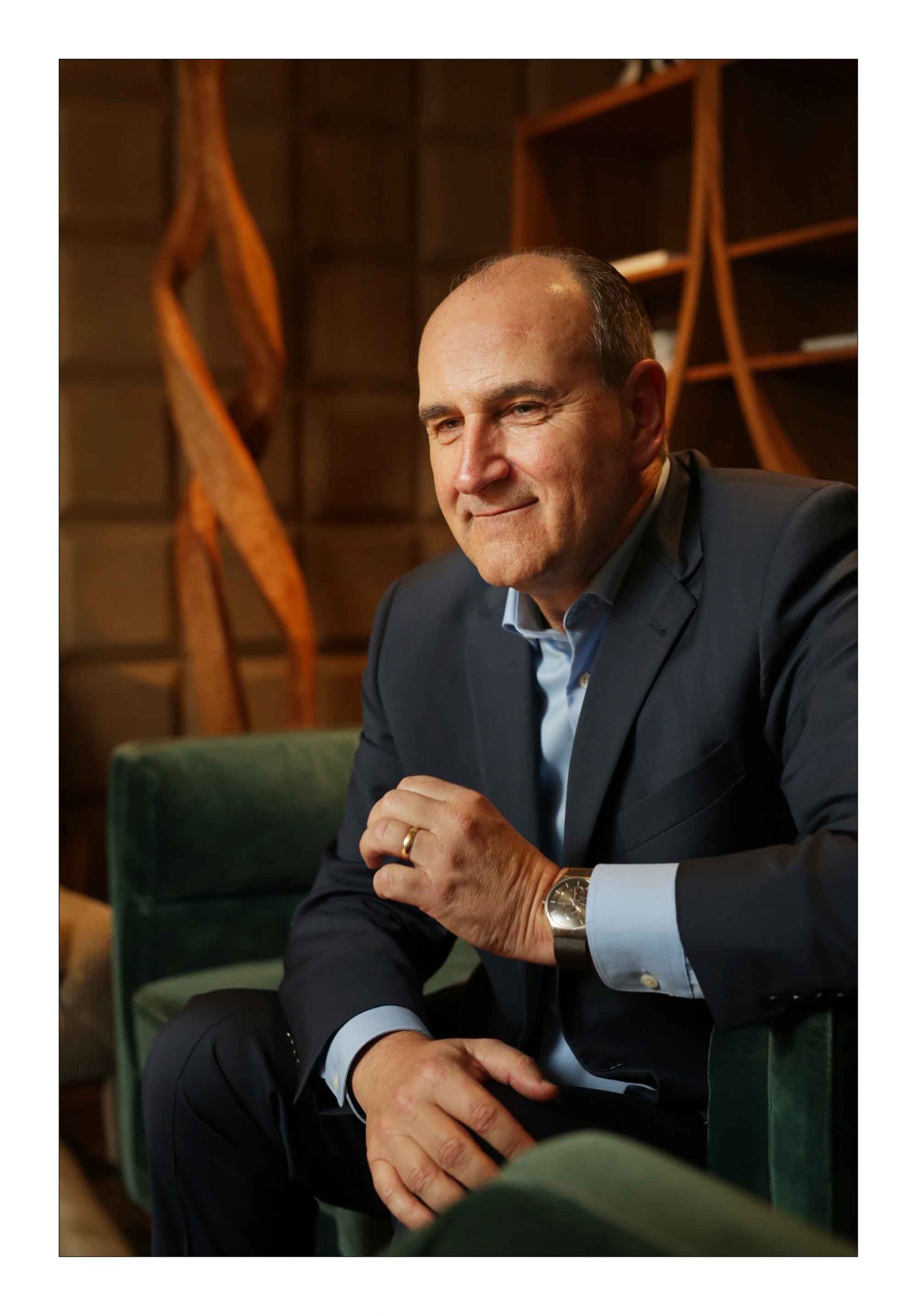
A Simple, Proven Path to Lasting Cultural Transformation
At John Mattone Global, we don’t offer quick fixes. We deliver a structured, measurable, and leadership-driven approach to building and sustaining a high-performance culture. A skilled culture consultant can guide your organization through this structured, measurable approach.
Through Intelligent Leadership® principles and proprietary assessment tools, we identify cultural gaps, align leadership behaviors, and create a strategic roadmap for long-term success.
How We Help Organizations Achieve Cultural Excellence
- Cultural Assessment & Diagnosis – Identify misalignment, strengths, and areas for improvement using industry-leading culture assessment tools.
- Leadership Alignment – Ensure executive teams and senior leaders model the behaviors needed to reinforce cultural transformation.
- Values Integration – Embed cultural values into daily operations, decision-making, and performance management.
- Strategic Culture Roadmap – A tailored, step-by-step approach to aligning culture with long-term business goals.
- Ongoing Coaching & Reinforcement – Sustainable transformation requires ongoing leadership engagement and cultural refinement.
JMG’s culture transformation strategies have been implemented in Fortune 500 companies, global enterprises, and government entities, helping leaders and teams achieve measurable, lasting change.
Our services are designed to help you build such a culture that fosters long-term success and employee engagement.
Intelligent Leadership®: The Core of Our Cultural Transformation Process
The Right Tools to Assess and Transform Your Culture
Unlike generic consulting firms, JMG applies data-driven methodologies and proprietary cultural assessment tools to measure, track, and refine cultural transformation.
Our key assessment tools include:
- The 5 Cultures of Culture Assessment (5CCA)® – Diagnoses your organization’s cultural strengths, weaknesses, and leadership alignment.
- The Cultural Transformation Readiness Assessment (CTRA-40)® – Evaluates your organization’s ability to implement cultural change effectively.
- The Stealth Cultural Transformation Model® – JMG’s framework for elevating your organization’s leadership, talent, and culture to drive results.
- The Six Steps of Culture Transformation – A structured framework to guide organizations through every phase of cultural change.
These tools provide deep insights into cultural gaps and growth opportunities, allowing leaders to take targeted, measurable action.
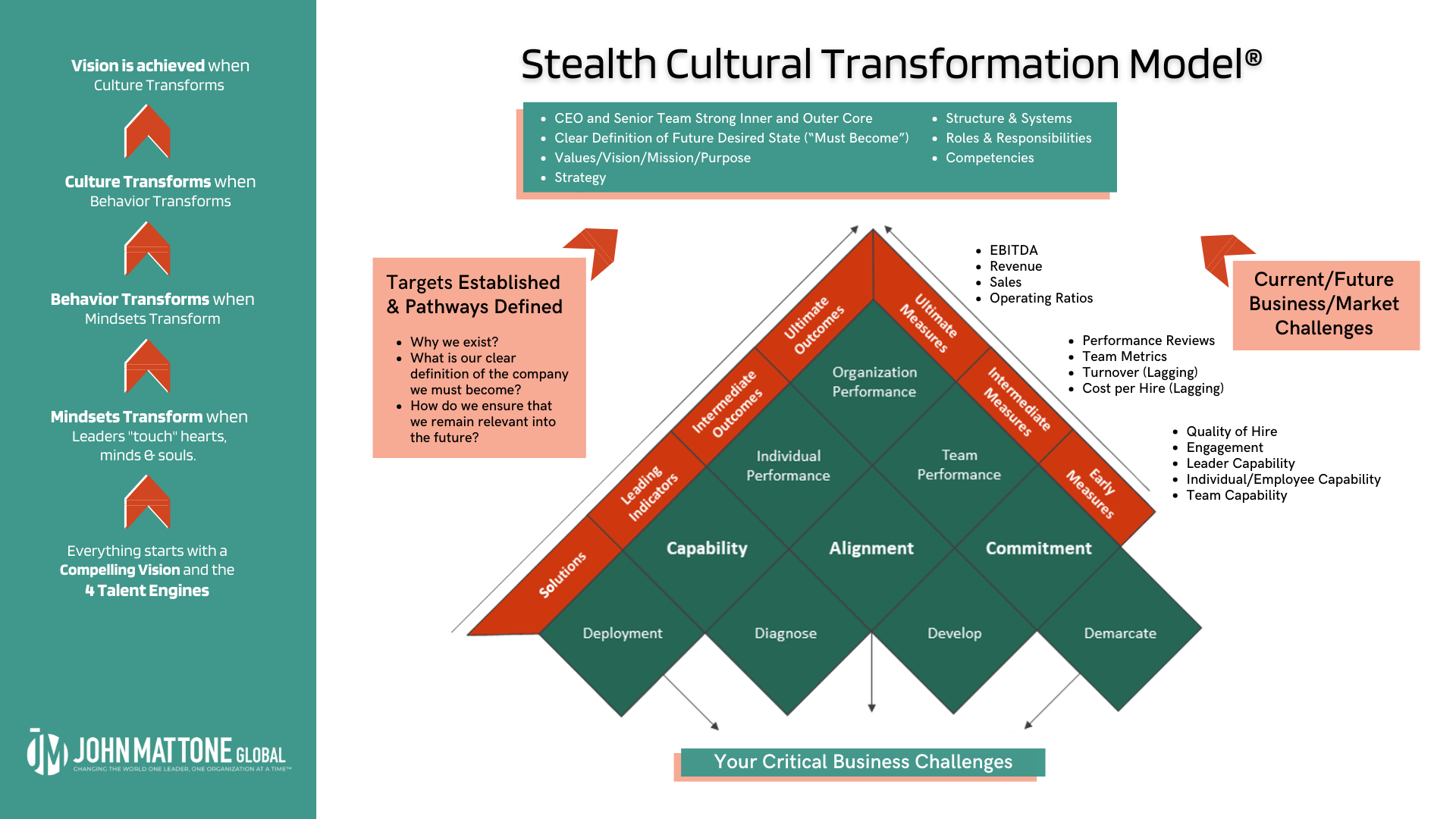
The JMG Culture Transformation Process: How It Works
Work with JMG: 3-Step Culture Transformation Process
Our cultural transformation process ensures that leaders, teams, and entire organizations align toward a shared vision of success.
Book a Free Consultation.
Engage John Mattone Global to support your cultural transformation initiative. We conduct an in-depth assessment to analyze your current culture, using proprietary tools to pinpoint strengths and weaknesses.
C-Level Culture Retreat and Executive Sessions to Review Results and Create a Strategy
Our expert culture advisors then develop a tailored roadmap for your organization’s transformation, focusing on organizational development, leadership development, and measurable cultural shifts.
Implement & Elevate
We work with your leadership team as culture partners, guiding execution and ensuring sustainable change through ongoing coaching, workshops, and reinforcement programs.
Are You Ready to Transform Your Organization’s Culture?
Your culture should be your greatest competitive advantage, not a liability.
The Intelligent Leadership® framework and JMG’s proprietary assessments provide the clarity, strategy, and execution needed to create a thriving, leadership-driven culture.
Let’s build a culture that inspires teams, strengthens leadership, and drives sustainable success.
Schedule Your Call with Nicholas Mattone,
CEO of John Mattone Global
The consultation will be with Nicholas Mattone, CEO of John Mattone Global, ensuring that potential clients receive personal attention from the leadership team.
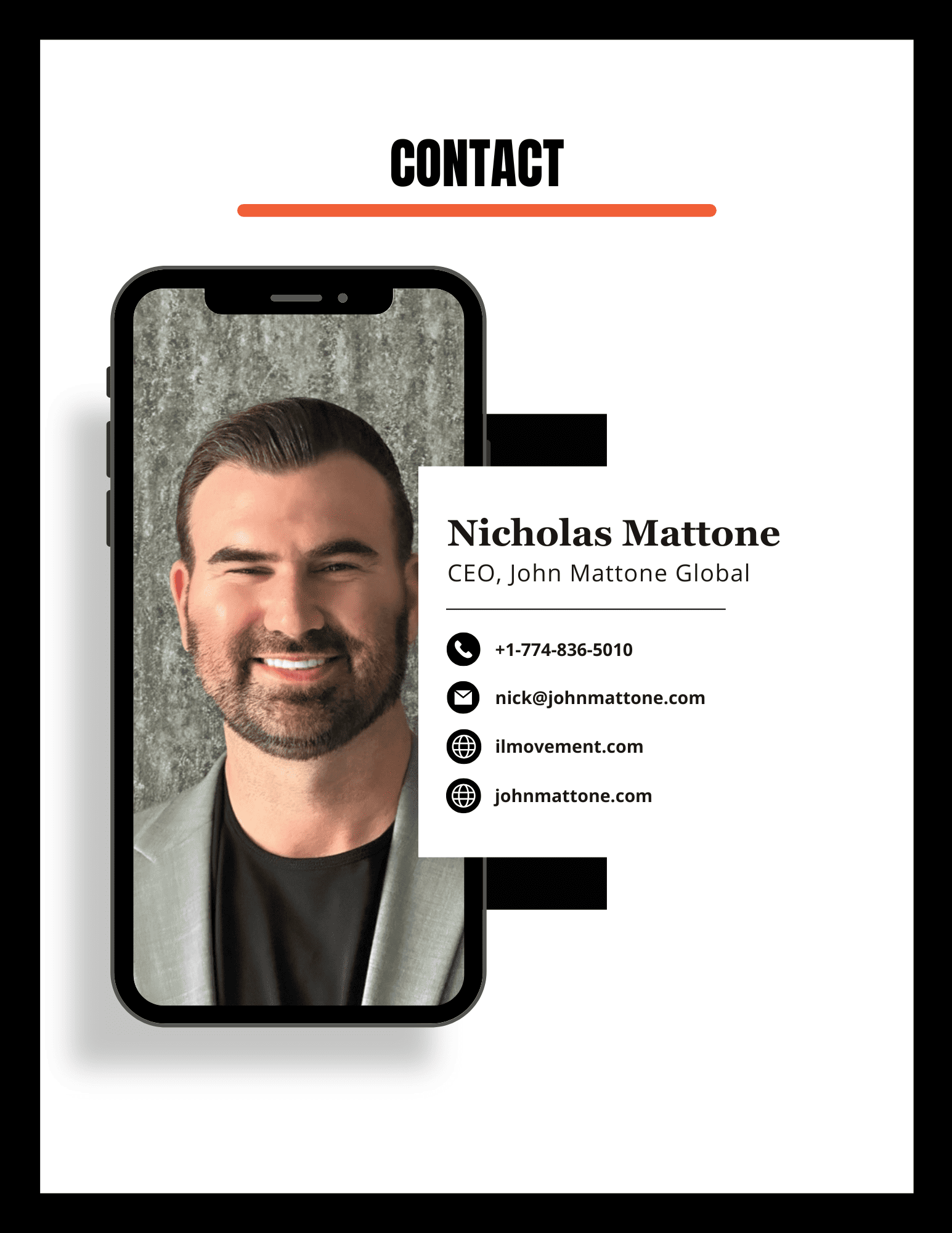
Why Partner with John Mattone Global?
John Mattone Global (JMG) sets the global standard for cultural transformation, leadership development, and executive coaching. Our Intelligent Leadership® framework and proprietary culture assessment tools have helped organizations worldwide align leadership, engage employees, and drive performance. Our team of company culture consultants brings unparalleled expertise to every transformation project.
A Legacy of Excellence & Global Recognition
- #1 Executive Coach & Leadership Authority – Recognized by Globalgurus.org, Fox Interviewer, and Thinkers50 as the world’s top executive coach (2019-2025).
- The World’s Leading Executive Coaching & Leadership Training Programs – JMG’s Intelligent Leadership® certification is ranked #1 in executive coaching training and #2 in leadership training worldwide (Globalgurus.org, 2025).
- Industry-Leading Intellectual Property – JMG holds 16 registered trademarks (with two pending), ensuring exclusive, research-backed methodologies.
- Trusted by Global Enterprises & Government Leaders – JMG has been recognized as a top 10 executive coaching and leadership development firm by Stats N Data, Worldwide Market Reports, and Infinity Business Insights.
- Award-Winning Thought Leadership – The Intelligent Leader was named a Best Business Book (Soundview, 2020), and JMG’s blog and podcast have ranked #1 globally (Feedspot, 2017-2025).
From coaching CEOs of Fortune 500 companies to advising government leaders worldwide, JMG delivers results-driven, measurable culture transformation strategies that set organizations apart. Our culture consultants are recognized leaders in the field, bringing unparalleled expertise to every project.







